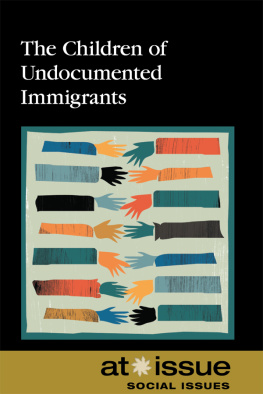Offering In-State Tuition Rates to Illegal Immigrants Violates the Law
Hans A. von Spakovsky and Charles D. Stimson
Hans A. von Spakovsky was the counsel to the assistant attorney general for civil rights at the US Department of Justice from 2002 to 2005. Charles D. Stimson served as a federal prosecutor and later deputy assistant secretary of defense in 2006 and 2007. Both are currently senior legal fellows in the Center for Legal & Judicial Studies at The Heritage Foundation, a conservative public policy think tank.
The Illegal Immigration Reform and Immigrant Responsibility Act of 1996 prohibits state universities and colleges from offering illegal aliens in-state tuition rates on the basis of residence if the same is not done for all citizens of the nation (meaning, students who are born in the country but may not be from the state in which they attend college). Several states have flouted this law, creating exemptions that supposedly permit illegal aliens to acquire in-state tuition based on their completion of high school or attainment of a GED (high school equivalence diploma) in the state where they live. This course is deceptive and illegal, for it still grants a privilege to illegal aliens while denying it to other citizens. Since the majority of American taxpayers do not believe in subsidizing tuition for illegals, the federal government needs to enforce the law and put an end to this favoritism.
I n 1996, Congress passedand President Bill Clinton signed into lawthe Illegal Immigration Reform and Immigrant Responsibility Act (IIRIRA). Section 1623 of this federal statute prohibits state colleges and universities from providing instate tuition rates to illegal aliens on the basis of residence within the State unless the same in-state rates are offered to all citizens of the United States. Today, 12 states allow individuals who are in the United States illegally to pay the same in-state tuition rates as legal residents of the stateswithout providing the same rates to others. By circumventing the requirements of 1623 these states are violating federal law, and the legal arguments offered to justify such actions are untenable, no matter what other policy arguments are offered in their defense.
A Nation of Laws, Not of Men
The United States is a country of immigrantsmen and women who sought opportunity and freedom in an exceptional new land. Americans take pride in their heritage and this countrys generous policies regarding legal immigration. Yet, as citizens of a sovereign nation, Americans retain the right to decide who can and cannot enter this countryand what terms immigrants and visitors must accept as a condition of residing in the United States. As mandated by the U.S. Constitution, Congress sets Americas immigration policy. State officials have considerable influence in Congress over the crafting of immigration laws, and they may take steps to help enforce federal law. However, state officials cannot act contrary to a congressional statute.
America is a nation of laws, not of men, and thus her citizens must abide by the rule of law. But even if the operation of the rule of law was not imbedded in the U.S. Constitution and legal system, every generation of Americans should re-affirm its virtue and security. These concepts, ancient as they are, and quaint as they may sound to some, provide the bedrock principles of this nations constitutional republic. To abandon them in individual caseswhere, for example, it seems opportunistic or personally appealingis to render them unavailable in the preservation of all other rights.
It is obvious that Congress meant to prohibit state colleges and universities from offering in-state tuition to illegal aliens unless the state institutions also offer in-state tuition to all students.
The Constitution, the States, and Immigration
Article 1, Section 8, Clause 4 of the United States Constitution provides that Congress has the power to establish an uniform Rule of Naturalization. Over the decades, Congress has done just that, imposing a variety of conditions on those who wish to immigrate (e.g., such individuals must do so openly and in accordance with established legal process) and on those who might be visiting (e.g., such individuals must not overstay their authorized visit).
Unambiguous federal law regarding who may receive the benefit of in-state college tuition is part of these conditions. Specifically, 1623 of IIRIRA provides that
Notwithstanding any other provision of law, an alien who is not lawfully present in the United States shall not be eligible on the basis of residence within a State (or a political subdivision) for any postsecondary education benefit unless a citizen or national of the United States is eligible for such a benefit (in no less an amount, duration, and scope) without regard to whether the citizen or national is such a resident.
Thus, it is obvious that Congress meant to prohibit state colleges and universities from offering in-state tuition to illegal aliens unless the state institutions also offer in-state tuition to all students, regardless of whether they live in the state or in another state. Congress may have assumed that state colleges and universities would not be able to afford offering in-state rates to everyone because these schools rely on the higher tuition from out-of-state students to help subsidize public colleges, and thus they would not offer in-state rates to illegal aliens. But the law itself provides a choice and only requires states to treat out-of-state citizens and illegal aliens equally.
Alternative criteria [that states use to provide illegal aliens with in-state tutition rates] are intended to act as a substitute for actual residence, which, in turn, creates the patina of compliance with the federal statute.
IIRIRA, once signed into law by President Clinton, should have settled this issue. But some states have continued to offer lower tuition to illegal aliens without offering the same to all studentsa direct violation of federal law. Specifically, 12 states have circumvented the express language and clear intent of the statute by erecting proxy legal justifications for offering in-state tuition to illegal aliens. These states have asserted these legal arguments in courts and forced others to waste time and resources in litigation to try to enforce federal law. Such state policies not only violate federal law; they also:
Encourage illegal immigration;
Are fundamentally unfair to students from out of state who are U.S. citizens; and
Force taxpayers to subsidize the education of illegal aliens.
Beyond these immediate concerns, there is another, larger issue at stake: the federal governments preeminent power to regulate immigration. The Supreme Court has held [in De Canas v. Bica (1976)] that the [p]ower to regulate immigration is unquestionably exclusively a federal power. However, not every state action which in any way deals with aliens is a regulation of immigration and thus per se pre-empted by this constitutional power, whether latent or exercised. In order for a state statute affecting immigrants (legal or illegal) to be valid, it cannot be expressly preempted by federal immigration law and must not otherwise conflict with federal law [as stated in Chamber of Commerce v. Whiting (2011)].
State laws that provide in-state tuition rates to illegal aliens are both expressly preempted by, and in conflict with, 1623unless the state also provides in-state tuition rates to all other American students regardless of their state of residence. However, none of the states that provide in-state tuition rates to illegal aliens have changed their state laws to provide such tuition rates to out-of-state students who are U.S. citizens.







